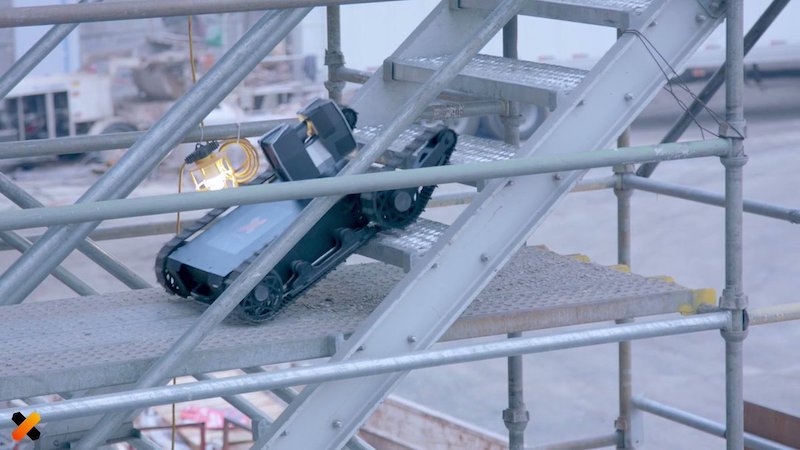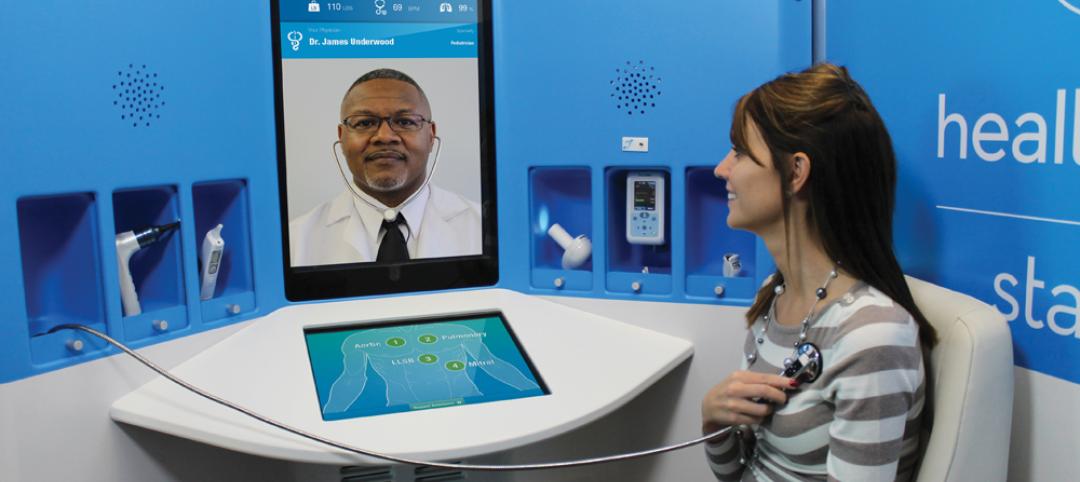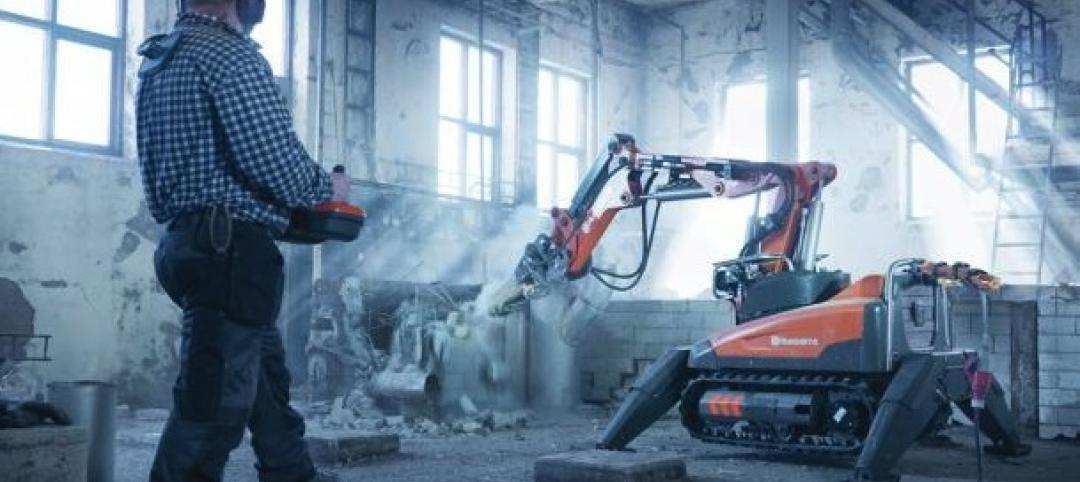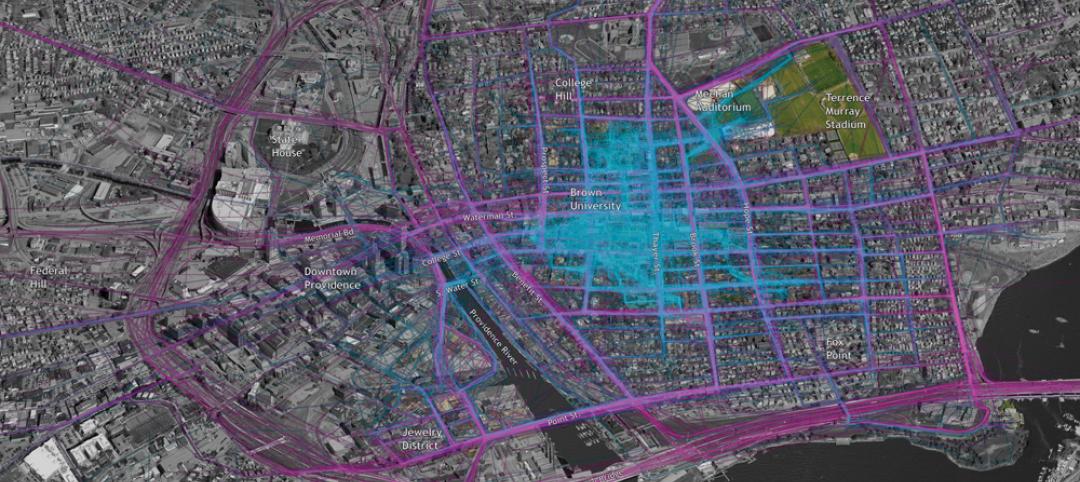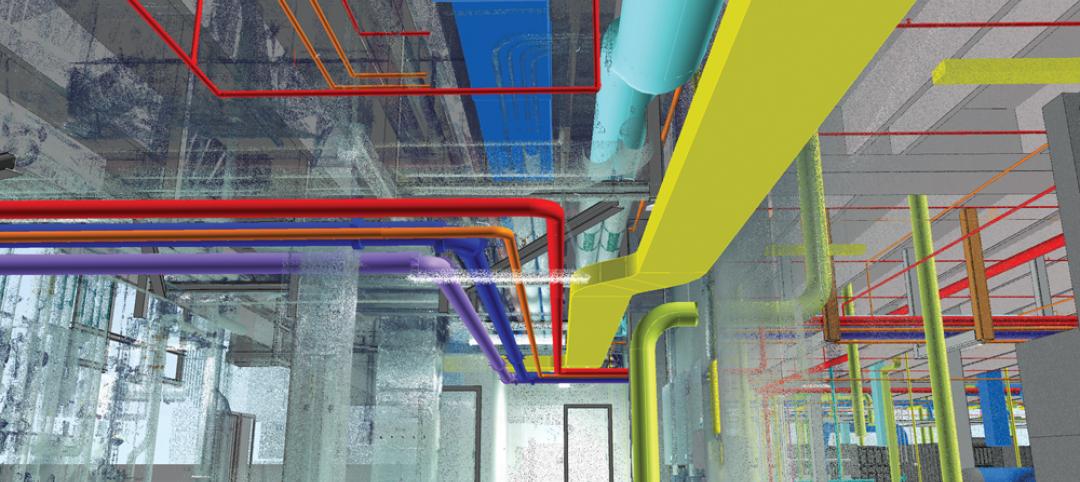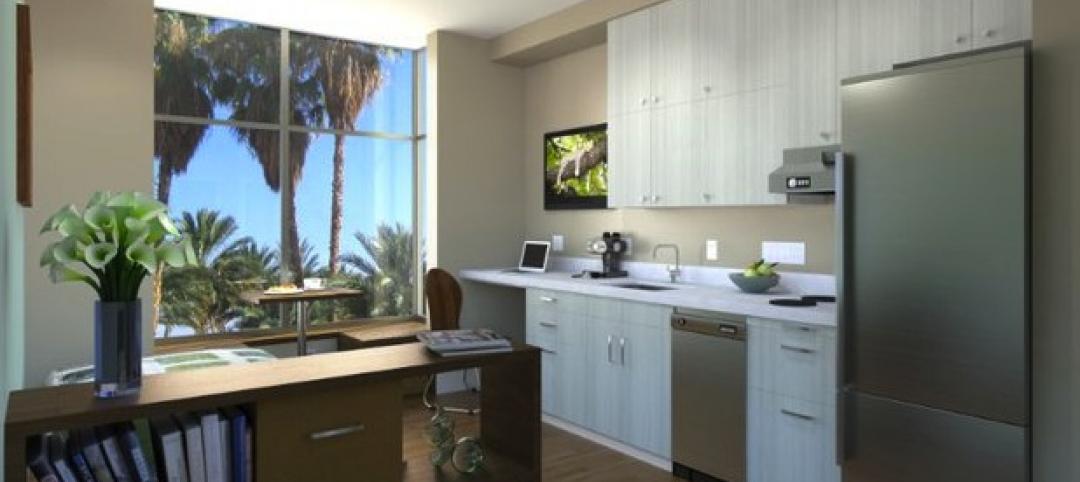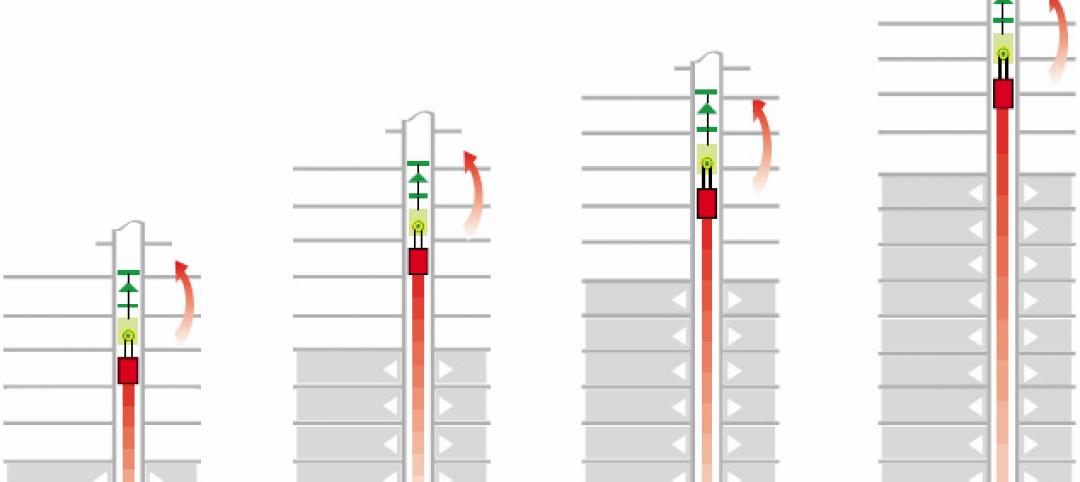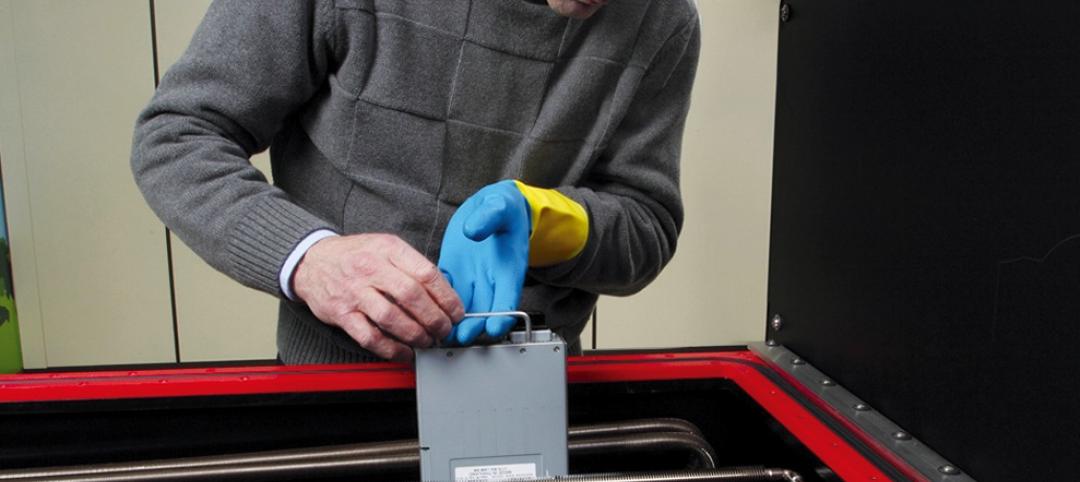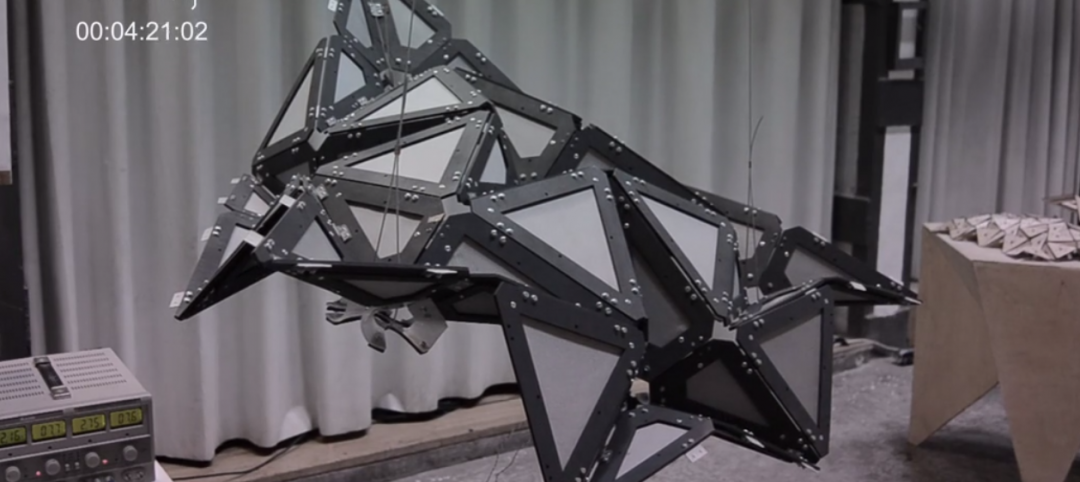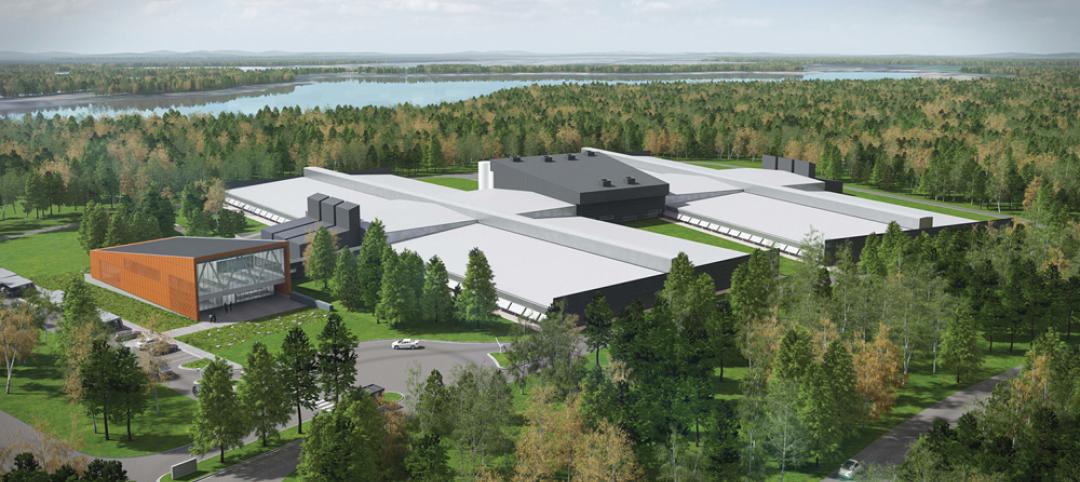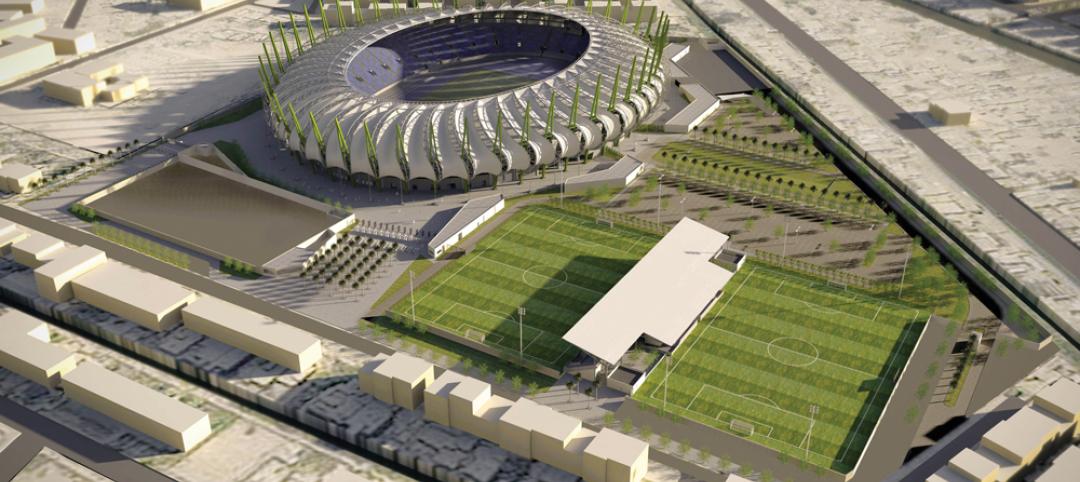The larger a construction project is, the more complicated it is going to be to manage. Small oversights or errors can lead to exponentially greater losses in time and money.
Doxel, a new construction productivity solution, claims to simplify the construction management process to help avoid these costly loses. Doxel’s preferred solution? Robots equipped with new artificial intelligence-based computer vision software.
In addition to drones capturing the site from above, Doxel uses rovers to comb through the site and gain the most accurate, up-to-date information. Part WALL-E, part MSE-6 mouse droid from “Star Wars,” Doxel’s self-directing robots survey building sites each day to capture HD imagery and laser scans at all stages of construction. The robots can traverse uneven terrain, multiple terrain types such as rock, concrete, or dirt, and can even climb stairs. Once in the correct position, the robot will stop and take a 360-degree scan of a space before moving on to the next area.
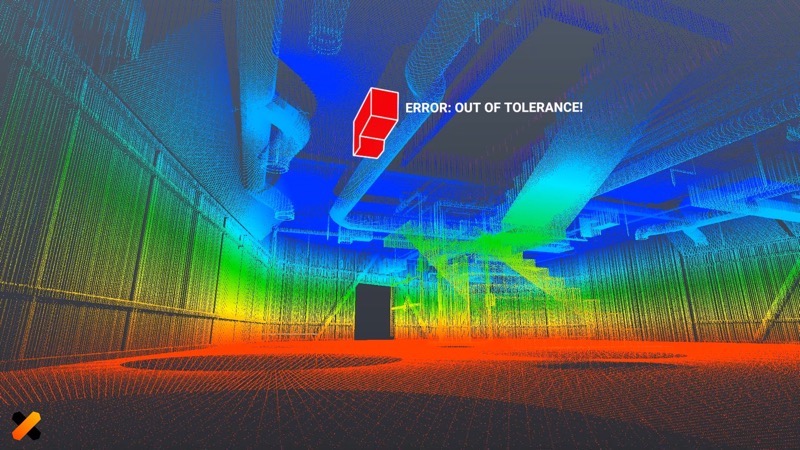 Courtesy Doxel.
Courtesy Doxel.
Working behind the software is a 3D semantic understanding algorithm developed by Doxel. This algorithm classifies objects in real-world construction environments with a high level of reliability. 3D computer vision was used because a 3D neural network, theoretically, requires fewer datasets for training than 2D. This new computer vision algorithm avoids the issues commonly associated with scans such as occlusion and poor visibility. It also is able to interpret clutter from installed materials.
Doxel’s algorithms classify installed components and measure quantities in real-time. This data is then cross-referenced with the project estimate to provide instant feedback of where a project stands financially. The software calculates earned value for thousands of line items to provide an exact amount owed for a day’s work.
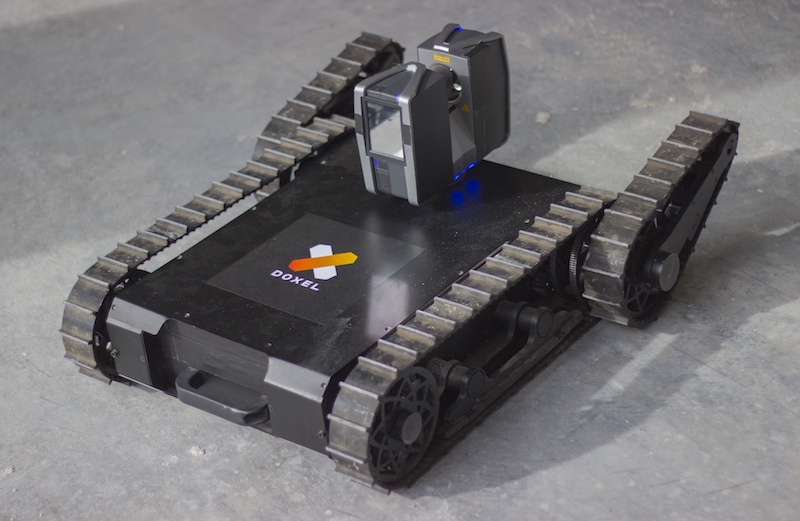 Courtesy Doxel.
Courtesy Doxel.
Doxel also tracks model-to-field deviations instantly to catch and correct errors early, before they cost time and money to rectify. The AI software deep links to the project schedule and detects when a crew falls behind. Alerts are sent via an integrated app notifying everyone of the delay so managers can re-prioritize and optimize labor
productivity.
Integrated cloud software makes it easy to track progress over time for things like plumbing, electrical, and mechanical. In one case study, Doxel increased productivity by 38% and helped the project team deliver the project 11% under budget.
Related Stories
| Dec 29, 2014
HealthSpot station merges personalized healthcare with videoconferencing [BD+C's 2014 Great Solutions Report]
The HealthSpot station is an 8x5-foot, ADA-compliant mobile kiosk that lets patients access a network of board-certified physicians through interactive videoconferencing and medical devices. It was named a 2014 Great Solution by the editors of Building Design+Construction.
| Dec 28, 2014
Robots, drones, and printed buildings: The promise of automated construction
Building Teams across the globe are employing advanced robotics to simplify what is inherently a complex, messy process—construction.
BIM and Information Technology | Dec 28, 2014
The Big Data revolution: How data-driven design is transforming project planning
There are literally hundreds of applications for deep analytics in planning and design projects, not to mention the many benefits for construction teams, building owners, and facility managers. We profile some early successful applications.
| Dec 23, 2014
5 tech trends transforming BIM/VDC
From energy modeling on the fly to prefabrication of building systems, these advancements are potential game changers for AEC firms that are serious about building information modeling.
| Dec 17, 2014
ULI report looks at growing appeal of micro unit apartments
New research from the Urban Land Institute suggests that micro units have staying power as a housing type that appeals to urban dwellers in high-cost markets who are willing to trade space for improved affordability and proximity to downtown neighborhoods.
| Nov 3, 2014
Novel 'self-climbing' elevator operates during construction of high-rise buildings
The JumpLift system from KONE uses a mobile machine room that moves upward as the construction progresses, speeding construction of tall towers.
| Oct 14, 2014
Slash energy consumption in data centers with liquid-based ‘immersive-cooling’ technology
A new technology promises to push the limits of data center energy efficiency by using liquid instead of air to cool the servers.
| Sep 10, 2014
Must See: Shape-shifting architecture that responds to heat
Students in Barcelona have created a composite material using shape memory polymers that can deform and return to their original state when activated by cues like heat, humidity, and light.
| Aug 4, 2014
Facebook’s prefab data center concept aims to slash construction time in half
Less than a year after opening its ultra-green, hydropowered data center facility in Luleå, Sweden, Facebook is back at it in Mother Svea with yet another novel approach to data center design.
| Aug 4, 2014
BIM Giants: Firms enhance BIM/VDC with advanced collaboration tools [2014 Giants 300 Report]
Cloud-based data sharing, rapid iterative design, and cross-discipline collaboration are among the emerging trends in the BIM/VDC field, according to BD+C's 2014 Giants 300 Report.


